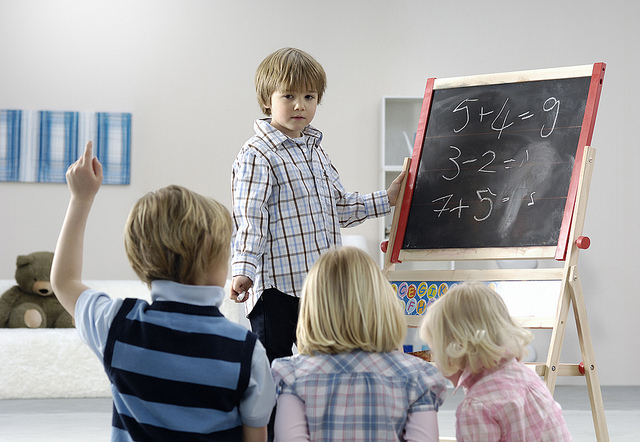Lifestyle
The ‘new math’: How to support your child in elementary school

There is likely no topic in Canada at the moment that is more acrimonious than elementary school mathematics education. The entire country, it seems, is divided. (Photo by www.audio-luci-store.it/Flickr, CC BY 2.0)
There is likely no topic in Canada at the moment that is more acrimonious than elementary school mathematics education. The entire country, it seems, is divided.
On one side, there are those who are enraged by the so-called “new math” that has been held simultaneously responsible for a) diminished achievement by students and b) frustration among parents who feel helpless in the face of unfamiliar strategies.
On the other side are those who insist that math must make sense to today’s students — children who have grown up in a digital age, are adept with multiple technologies and will likely never be required to perform long division.
As a researcher who is deeply committed to engaging parents as partners in mathematics education, I spend many evenings on the road. I work with school staff and school councils across the province of Ontario to support parents in their efforts to help their children learn and love mathematics.
In communities from Chesterville to Picton, Guelph to Thunder Bay and Courtice to Fort Frances, I have encountered the same question repeatedly: What are you teaching my child?
Arithmetic from Mexico to Japan
The question is always sincere. The rationale differs considerably, but in most cases, the question arises because the computational strategies that the child is using to perform multi-digit calculations look very different from those learned by the parents, resulting in confusion and mistrust.
Experience has taught me to give a quick mini-lesson on arithmetic around the world to emphasize that there is no one global set of rules for calculations.
For example, I show a method that was used in Mexico, called “llevamos uno” — we carry one. Instead of noting ones or 10s to be “carried” at the top of the next column, students were taught to note those figures to the right side of the problem.
I share a method that I learned from the Philippines, where students use dashes to indicate groups of 10.
Finally, I share a Japanese “scratch method” that is similar to the one used in the Philippines, but instead of dashes, overstrikes are used to keep track of groups of 10s. In addition, the leftover amounts are indicated by the use of subscripts.
We read left to right
Having made the point that there is no universal set of rules to add multi-digit numbers and that all unfamiliar methods (including those used by their children) seem complex and incomprehensible at first glance, I am able to emphasize two important reasons to support new strategies for multi-digit addition.
When I ask parents to reflect on how they read to and with their toddlers, the answer is immediate and consistent: From left to right, using their index finger to trace the direction of the words.
Then I ask them what happens when we introduce children to the task of adding two-digit numbers. The light bulbs go on. We teach them to work right to left.
“Why?” I ask.
Dead silence or: “Because.”
In our number system, the value of a digit depends on its place, or position, in the number. So, for example, the number 4,276 is made up of 4,000 + 200 + 70 + six. Children who understand place value, i.e., that the value of a digit (zero to nine) depends on its position in a number, can easily decompose a number — an important strategy for mental math.
It’s ironic that after months of teaching the importance of place value, a fundamental concept in math, we do not apply that knowledge in practical ways to simplify multi-digit addition. As soon as we introduce questions like ?





















